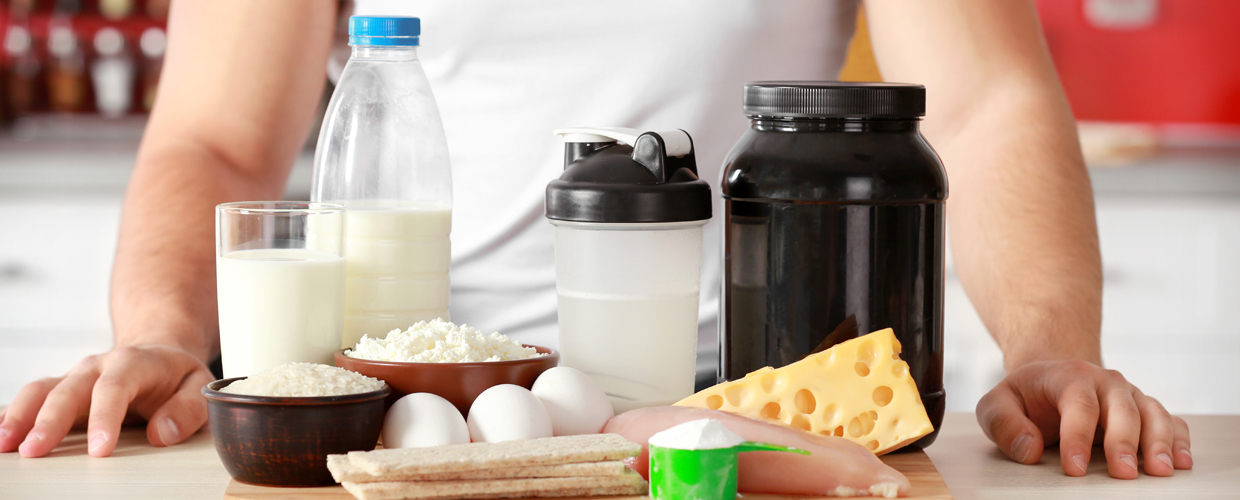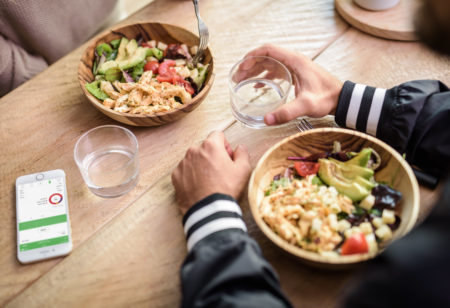
While the spotlight shines brightly on the importance of living a healthy lifestyle, many of us have been imbibing multifarious diets into our regime. Anyone who wants to lose weight will definitely be familiar with the ‘Low-Carb’ diet plan. And the odds are that many of them have tried it as well! However, it is no myth that when you embark on such specialized and targeted diets, you ought to stumble upon hurdles.
These obstacles can be any imbalance caused by overindulging in other macro nutrients to not eating enough. Hence, it is essential to meticulously pre-plan your dietary routine in sync with what works for you and what doesn’t.
As the name suggests, a low-carb diet is about restricting the type and amount of carbs you consume in a day. This macro-nutrient has been vilified as the nutrient that makes you fat.
However, carbohydrates are in fact your body’s crucial fuel source, hence you need them for optimal energy to function. Carbs can be either simple or complex. Like, ditching refined carbohydrates like sugars and white flour can boost weight loss, similarly, consuming fibrous complex carbohydrates like fruits and whole grains can aid weight loss as well.
 This diet can be extremely effective in helping you lose weight or even inculcate a healthy eating regime in your lifestyle, however, one may not see the dire results as they may be doing something wrong. This diet won’t just help you lose weight if followed properly, but studies also show that this diet can also reduce the risk of insulin resistance and diabetes.
This diet can be extremely effective in helping you lose weight or even inculcate a healthy eating regime in your lifestyle, however, one may not see the dire results as they may be doing something wrong. This diet won’t just help you lose weight if followed properly, but studies also show that this diet can also reduce the risk of insulin resistance and diabetes.
To help you achieve the desired results while being on a ‘Low-Carb’ diet, we have listed listed out the top
6 mistakes you can probably make!
1. Not eating enough
Planning a diet is not a very easy task. Going on a low-carb diet can make you consume lesser calories than the amount you should consume. Considering you need to cut back on a lot of carb-rich food like bread, pasta, rice, etc you will end up eating a lot lesser. This will happen, as in a low-carb diet you fulfill the need for carbs by consuming high-protein food. Protein and fat are in general a lot more filling and satisfying than carbs – leaving you to feel fuller for a longer duration.
All these consequences can lead up to you not fulfilling your calorie intake. Starving yourself will have a reverse effect in fact. You don’t want to go into this starvation mode because this will slow down your metabolism and may even reduce your muscle mass. Therefore, over-weighing the advantages.
2. Eating the same meals
Too much of something is also not very good! It is strongly advised, before embarking on a low-carb diet, pre-plan some meals and keep recipes handy. It is very easy to repeat a few delicacies as its a safe option. But, you need to fulfill the requirements of the other macro-nutrients demanded by your body.
One of the keys to successfully adhere to this diet is by keeping your meals interesting. Get creative in the kitchen and show your culinary skills by trying out new recipes that work well for you. You can try out new recipes like Low carb, Gluten-free cauliflower bread-sticks or even Baked Broccoli Tots.
3. Intense workouts  Switching from a normal diet to a ‘low-carbs’ diet will act as a shocker for your body as it needs to use fat as a fuel source rather than the carbohydrates. Hence, as your body adapts in the first week or two of your new regime, heavy exercising may end up making you feel too weak or tired or even light-headed.
Switching from a normal diet to a ‘low-carbs’ diet will act as a shocker for your body as it needs to use fat as a fuel source rather than the carbohydrates. Hence, as your body adapts in the first week or two of your new regime, heavy exercising may end up making you feel too weak or tired or even light-headed.
Therefore, it is recommended to not engage in heavy exercising. To avoid such extreme repercussions, make sure you get enough rest and undertake lighter exercises like walking and yoga until you start feeling more energized.
4. Insufficient Fiber intake
Meanwhile, you focus to get your protein and fat intake right, fiber may get sidelined. However, you shall do everything in your power to avoid so! You essentially need 20 to 35 grams of fiber a day to keep your digestive process smooth and healthy and to help prevent colorectal cancer. Include fiber-rich fruits and vegetables in your meals.
The simplest and easiest way to achieve your daily requirement is by making sure you make interesting salads that can be eaten as a mid-meal snack too! Prepare a fruit salad by adding Pears, strawberries, apples, avocados, raspberries, bananas, etc. Similarly, to fulfill your vegetable requirement, prep-up a delicious salad that includes asparagus, carrots, kidney beans, Brussels sprouts, etc.
5. Insufficient sodium intake
 Consuming a lot of salt is stated as harmful, however, consuming insufficient salt can also negatively impact you while being on a low-carb diet. As soon as your body starts burning fat instead of carbs, your kidney releases more water and sodium, making you feel and seem a lot
Consuming a lot of salt is stated as harmful, however, consuming insufficient salt can also negatively impact you while being on a low-carb diet. As soon as your body starts burning fat instead of carbs, your kidney releases more water and sodium, making you feel and seem a lot
less bloated. But at times, losing a lot of sodium can end up making you feel dizzy, fatigued and nauseous (headaches mostly). If you have been advised to cut down on salt, consult your doctor first. Consuming broth and staying hydrated will help you avoid this common mistake!
6. Depriving yourself
At times depriving yourself of certain treats may not end up well. Ditching your favorite pasta or cookies may help you achieve the desired result but the craving wouldn’t stop. After all, these simple carbs can spike your blood sugar and prompt your body to store excess glucose as fat. These craving wouldn’t stop and will require a very strong will power to overcome. You may eliminate your favorite treats from the diet. But those cravings might lead you to take a bite or two or three, making you fall into a vicious cycle. This will not only fail your diet but will also lead you into a destructive cycle of deprivation, cravings, binging, feeling guilty, then depriving yourself again.
So, instead of forbidding yourself from eating your favorite carb-rich foods, it is suggested that you
should give yourself 150 calories at the end of the day to eat whatever you want. This could be a small chocolate chip cookie or a small portion of your favorite white pasta!
